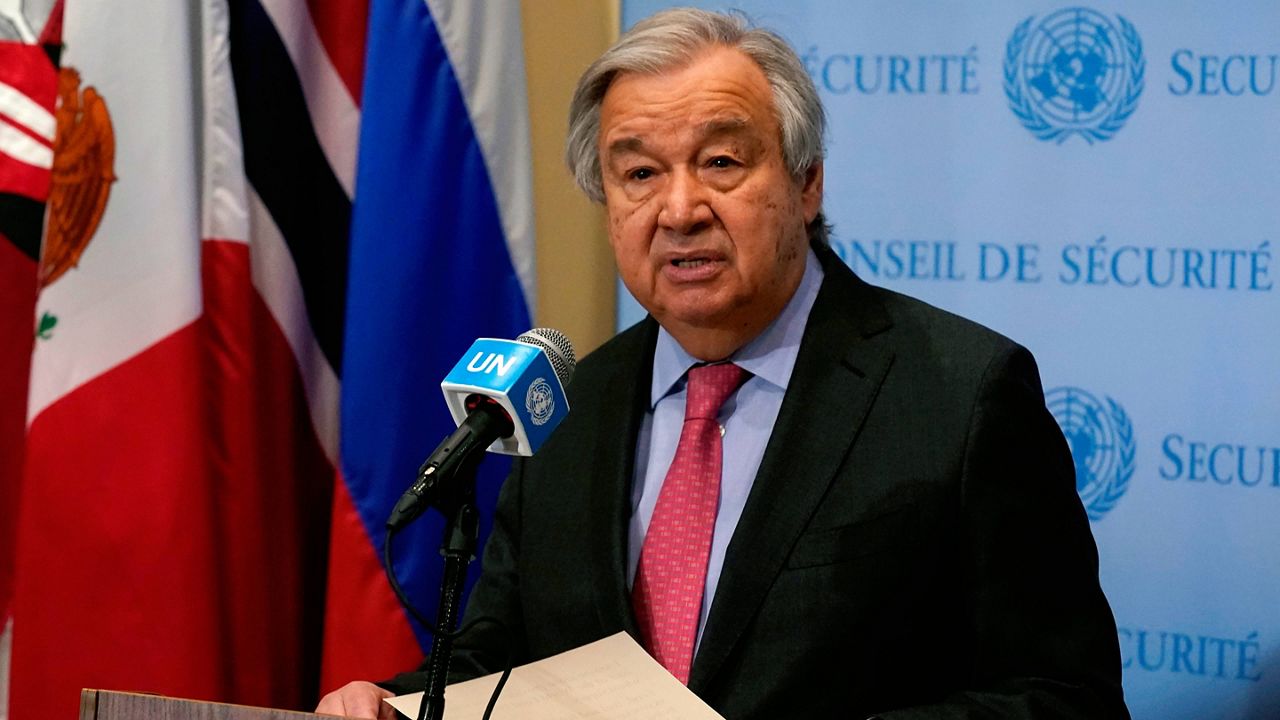The head of the United Nations warned Monday that the world is “sleepwalking to climate catastrophe,” as its actions to combat global warming have been insufficient.
What You Need To Know
- The head of the United Nations warned Monday that the world is “sleepwalking to climate catastrophe,” as its actions to combat global warming have been insufficient
- In a video address for the Economist Sustainability Summit, U.N. Secretary-General António Guterres said efforts to limit the earth’s warming to 1.5 degrees Celsius (2.7 Fahrenheit) above preindustrial levels is “on life support"
- Guterres said the "main problem" of the "enormous emissions gaps" was not solved at the U.N. Climate Change Conference in Glasgow, Scotland, in November
- He said nations with developed economies and those with emerging companies need to stop playing a “blame game”
In a video address for the Economist Sustainability Summit, U.N. Secretary-General António Guterres said efforts to limit the earth’s warming to 1.5 degrees Celsius (2.7 Fahrenheit) above preindustrial levels is “on life support. It is in intensive care.”
Climate experts say limiting warming to 1.5 degrees is needed to avert the worst consequences of climate change.
Guterres said some progress was made during the U.N. Climate Change Conference in Glasgow, Scotland, in November, but that world leaders left with “a certain naive optimism.”
“The main problem was not solved,” he said. “It was not even properly addressed. And that main problem is the enormous emissions gaps.”
He said that despite needing to reduce emissions worldwide by 45% by 2030 and achieve carbon neutrality by mid-century, global emissions are set to increase by almost 14% this decade and coal emissions are at record high levels.
“If we continue with more of the same, we can kiss 1.5 (degrees) goodbye,” Guterres said. “Even two degrees may be out of reach, and that would be a catastrophe.”
He said nations with developed economies and those with emerging companies need to stop playing a “blame game” where major countries say emerging countries must accelerate their transition to cleaner energy while the emerging nations blame developed ones for exporting carbon-spewing industrial activities and still falling short in trying to fix the problem.
“If this goes on, there are no winners in the blame game,” Guterres said. “We can't point fingers while the planet burns.”
The U.N. leader said the Russia-Ukraine war poses an additional threat because a global scramble to replace Russian oil and gas in the short-term might create further long-term fossil fuel dependence.
“Countries could become so consumed by the immediate fossil fuel supply gap that they neglect or knee-cap policies to cut fossil fuel use,” he said. “And this is madness. Addiction to fossil fuels is mutually assured destruction.”
Guterres called for the formation of coalitions to provide major emerging economies with the resources and technologies they need to accelerate their transition from coal to renewable energy. He said those nations face roadblocks on their own in achieving that goal, including high capital costs and technical challenges.
He also said developed nations must stop funding coal at home and abroad, dismantle coal infrastructure and fully phase out the use of coal by 2034 in the 38 countries that are members of the Organization for Economic Co-operation and Development and everywhere else a decade later.



